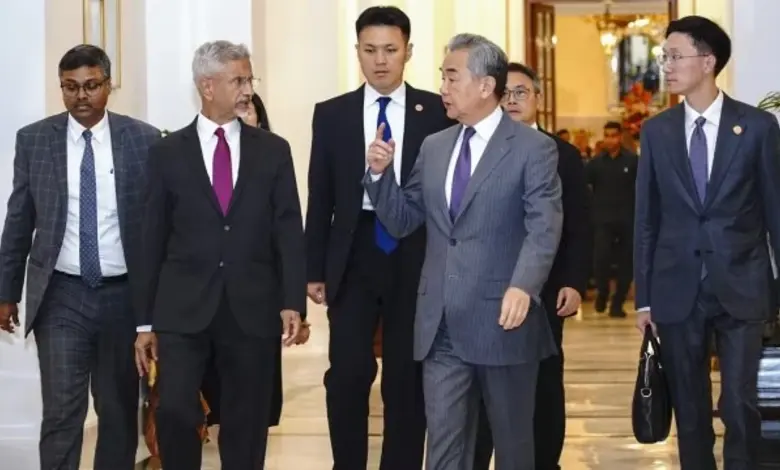New Delhi: Chinese Foreign Minister Wang Yi arrived in India on Monday for a two-day visit, marking his first trip to the country since the completion of troop disengagement along the Line of Actual Control (LAC) in November 2024. The visit, which comes ahead of Prime Minister Narendra Modi’s anticipated trip to China for the Shanghai Cooperation Organisation (SCO) summit, signals ongoing efforts to stabilize India-China relations after years of tension.
External Affairs Minister S. Jaishankar met Wang Yi and emphasized the need to advance the de-escalation process along the LAC, where approximately 50,000 to 60,000 troops remain deployed on each side. Speaking at the start of their meeting, Jaishankar stressed that maintaining peace and tranquility in border areas is critical for positive momentum in bilateral ties. He advocated for a candid and constructive approach, guided by mutual respect, sensitivity, and interest, to prevent differences from escalating into disputes. The discussions covered economic and trade issues, pilgrimages, people-to-people exchanges, river data sharing, border trade, connectivity, and bilateral exchanges.
Wang Yi, who will also meet National Security Advisor Ajit Doval for the 24th round of Special Representatives’ talks on the boundary issue, did not secure a meeting with Modi during his last visit in April 2022. This time, however, he is scheduled to call on the Prime Minister. The talks between Wang and Doval aim to address the ongoing border situation and explore new confidence-building measures.
In a post on X, Jaishankar expressed optimism that the discussions would foster a stable, cooperative, and forward-looking relationship between India and China. In Beijing, Chinese Foreign Ministry spokesperson Mao Ning noted that previous Special Representatives’ talks led to significant agreements, including progress on border management and cross-border cooperation, which both sides are actively implementing. The visit underscores a mutual commitment to rebuilding ties strained since the 2020 Galwan Valley clashes.
